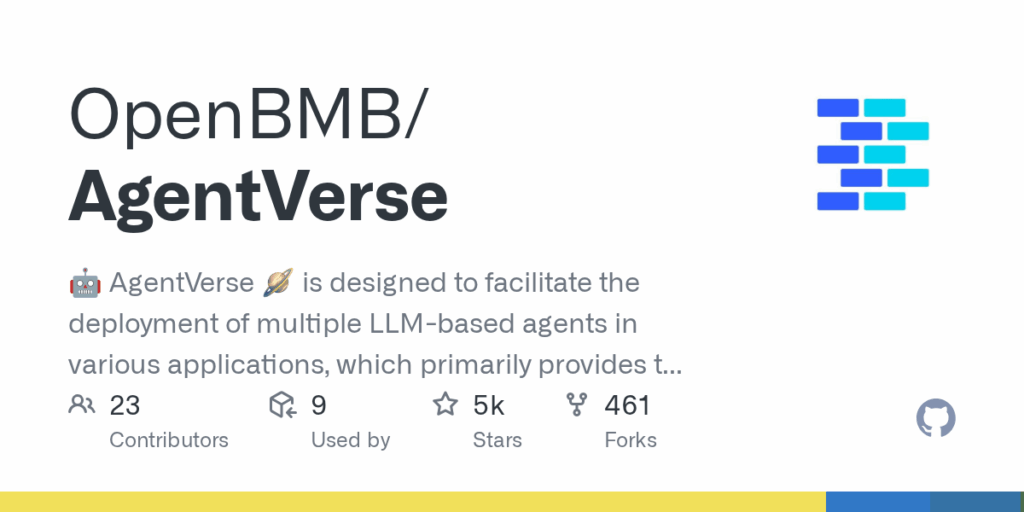AgentVerse
Basic Information
AgentVerse is an open-source Python framework to build, run and study systems composed of multiple large language model based agents. The repository provides two primary frameworks: a task-solving framework that composes multiple agents into an automatic multi-agent system to collaboratively solve problems, and a simulation framework that creates custom environments to observe and interact with agent behaviors. It includes example scenarios and demos such as NLP Classroom, Prisoner’s Dilemma, software design, database administrator, and game-like interactions. The project targets researchers and developers who want to deploy multi-agent LLM applications, reproduce experiments from the accompanying paper, or explore emergent behaviors among agents. The codebase supports both cloud APIs and local models and includes CLI and optional GUI interfaces for running tasks and simulations.








